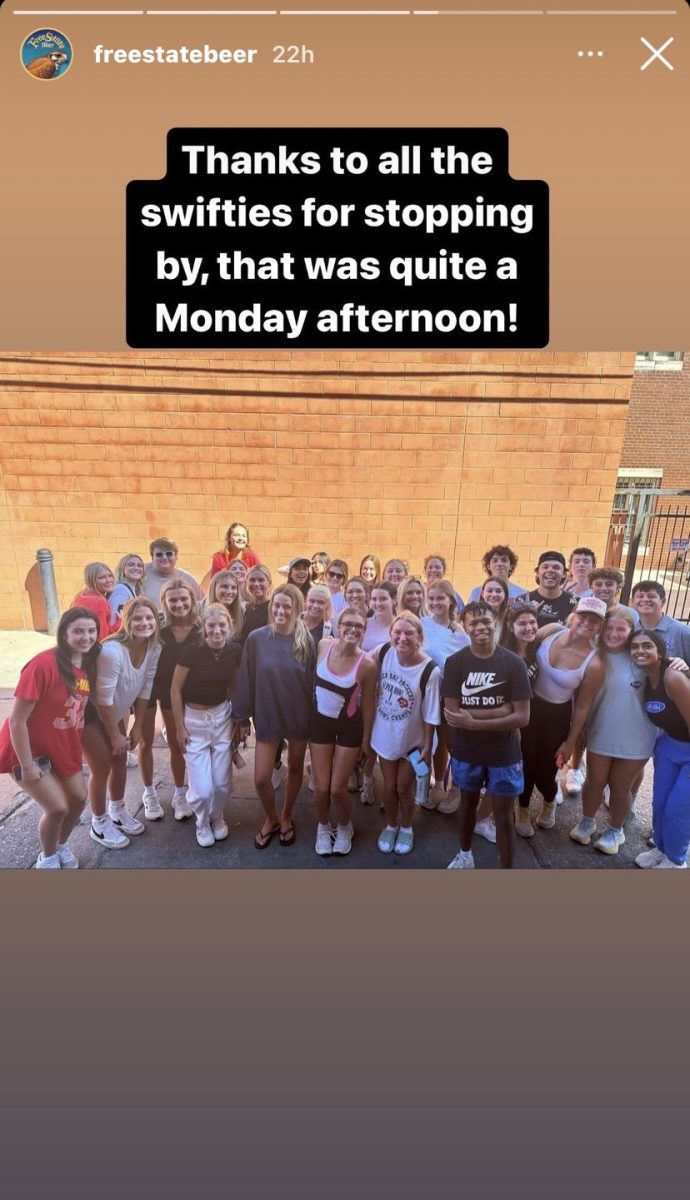Music is an art that is as old as anyone can remember, yet it never stays the same.
Along with the sound, the business also has changed in the music world.
Junior Evan Barnes attributes some of the change to technological advancements.
“It’s definitely a game changer with the technology age,” he said. “It’s definitely mixing things up.”
Technology has changed how people share music. Sites such as The Pirate Bay and Limewire allow people to download music off the internet freely and illegally from just about any computer or smartphone.
Interpret, a company that researches new media and the technology market, states that 20 percent of United States consumers between the age of 12 and 65 have illegally downloaded music.
“If people are getting [music] illegally and sharing it with their friends, it’s just going to have a wide spread domino effect,” Barnes said. “[Until] pretty soon no one’s going to have to buy music because you can just get it from your friend who got it from another friend who got it illegally.”
Barnes thinks that sharing music can take away some of an artist’s potential money since people don’t have to pay for the songs that they are downloading.
Junior Sam Dowell, on the other hand, thinks that sharing music can often help.
“I know a lot of people who download music illegally,” Dowell said. “I don’t do that … but I think [music sharing is] expanding a lot and people are definitely getting into other styles of music, so overall I think it’s helpful.”
Sophomore Andrea Coleman has also noticed an increase in music sharing.
“I think that music sharing [will] be a lot easier in that you can find pretty much any song you could ever think of and just send it to somebody and be like, ‘Hey listen to this,’ in a split second,” Coleman said.
Although Coleman has seen music sharing expand on the Internet, she doesn’t think it’s all that great. She believes that it takes away some of the emotion involved in the song.
“Now [sharing music is] all over the Internet and it’s all very mechanical,” she said. “ … It used to be playing something beautiful for somebody as a token of appreciation, but now it’s just like, ‘Listen to this song, it has a nice beat.’”
Recording industries are also influential in a band’s career.
Getting a record contract can restrict an artist’s decision making because the recording companies are looking for a certain sound and image.
“A lot of times it seems like people can’t get as much artistic freedom because of money,” Dowell said, “because it usually always comes down to that when it should be about the music and everyone’s ideas.”
After a band gets started, Coleman feels that they will not need a recording company to guide them.
“I don’t really like what [the recording industries] are doing with bands,” Coleman said, “because I know a girl; she got into a recording contract and they told her if she gained anymore weight they’d drop her. So, I feel like they are trying to make all these bands perfect, skinny, muscular, when that’s not how real life is.”
Signing record deals, however, is a milestone in a successful artist’s career. Through promotions, the recording industries ensure long-term success. According to the Recording Industry Association of America, major music companies “create and/or distribute about 85% of the music sold in the U.S.”.
Barnes believes that the recording industries still play an important role in helping a band’s image. Even though a record industry may restrict a band, they still help raise a band to fame.
“I think [recording companies] are still going to be making people sound good and [they are] doing the best that they can to promote the band,” Barnes said.
Music streaming is another large factor in the music sharing realm. The International Federation of the Phonographic Industry claims that in 2011 subscriptions to legal music streaming sites increased 65 percent worldwide.
Barnes, Coleman and Dowell all agree that music streaming websites are helpful in finding new bands and songs, yet Barnes and Dowell tend to buy their music.
“I buy my songs on iTunes and just listen to [them] on my iPod most of the time,” Dowell said. “I have a couple CDs that I listen to in my car, but it’s mainly my iPod.”
Technology has drastically changed music today and for the future. The fate of music is now in the hands of technological improvement which makes the accessibility of it easier, cheaper, and quicker.















![After receiving advice from her students, orchestra director Judy Erpelding marks her music. Although the director normally makes the artistic decisions, Erpelding will often consult her students and hear their opinions on what sounds good and what they should try out. “[The students] are the heart of the program, not me,” Erpelding said. “I know they will carry that on and I will miss them. Making great music with them, being able to challenge them, taking their inspiration.”](https://www.fsfreepressonline.com/wp-content/uploads/2023/05/Roust_Erpelding_5_11_23-600x900.jpg)







